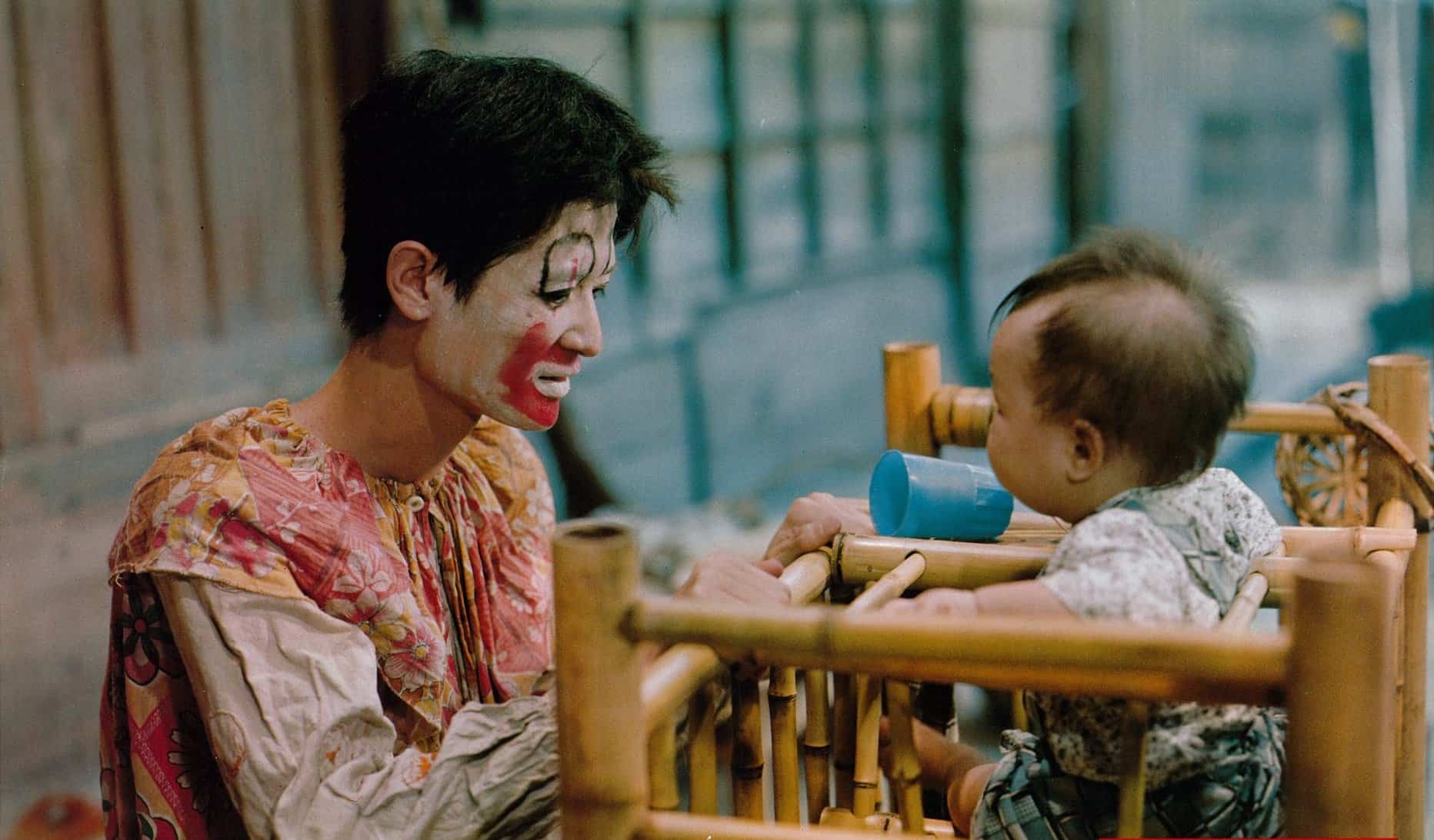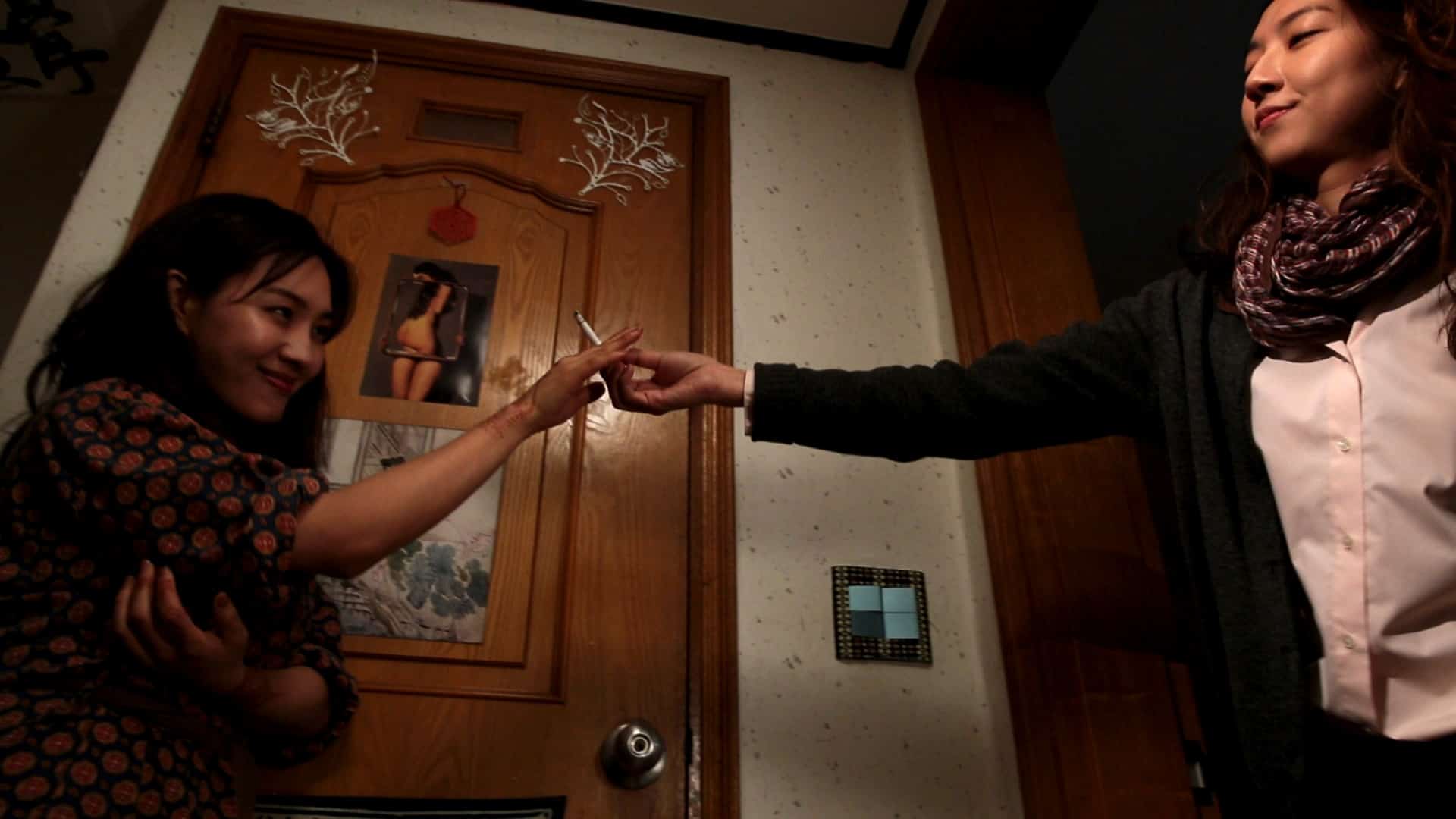The issues caused by the ever increasing elderly population of Japan have been examined by a number of filmmakers, particularly during the recent years. Yusuke Okuda, drawing from his personal experiences, also tries his hand in the particular theme, through an approach, however, that is quite different than the usual ones, especially due to the restraint it exhibits.
“Somebody's Flowers” is available from Article Films
Takaaki is a lonely iron shop welder who is still recovering from the loss of his brother, with his way of coping including regular visits to a support group and talking to a colleague during work, who cannot actually hear him though. At the same time, his father suffers from dementia, constantly confusing him with his older brother, while Takaaki is not willing to help his mother with his care in any significant way, with the only assistance she receives being from Satomi, a caretaker. One day, the father of a newcomer family of three that has just moved into the parents' building, is killed by a flowerpot that has fallen from their neighbor's balcony, during a rather windy day. The man was not particularly liked in the building to begin with, but Satomi eventually begins insinuating that the accident could be a crime, also noting the state they found Takaaki's father just after the incident. Reaching the truth, however, seems impossible, while his mother's insistence for the two remaining members of the family to attend his support group puts even more strain on him.
Yusuke Okuda approaches the concept of elderly dementia and the strain it puts on families nowadays in the most realistic way, without, though neglecting to add an element of mystery and whodunnit, which both allows him to offer more entertainment, but also to enrich his narrative with additional comments. In that fashion, the concept of loss is also examined rather thoroughly, with Okuda focusing on both the psychological, particularly in the case of Takaaki, and the practical consequences, mostly through the characters of the single mother and her son. The same approach applies to the concept of dementia, which is highlighted through the fact that these people do not really know or remember what they are saying or doing. The way Okuda highlights this aspect, by involving the suspicion of a crime, emerges as the best aspect of the narrative, as it creates a sense of tension and angst, which is heightened even more by the fact that no one can ever know the truth, since the only one who knows what happened is a man who does not remember.. Through this aspect, another comment is made, that in such circumstances, and also in the case of loss and a number of other occasions of life, one can only let go and try to deal with the future, instead of dwelling on things of the past that do not lead anywhere.
On yet another set of comments, this time through the unlikeable neighbor, Okuda also talks about the prejudice that characterizes Japanese society, whose members, once more in a movie, are portrayed as one quite eager to put the blame on someone. Furthermore, the story also comments on the fact that sometimes things are not as they seem, and that people who seem obnoxious might have a reason for being so.
The majority of these comments are presented through a wonderfully measured approach, with Okuda retaining the slow-burning balance in excellent fashion, without straying away from it even for a minute, in a narrative that could easily become a tear-jerker. This approach benefits the most by the editing, which retains the pace for the whole of the 115 minutes of the movie, and the excellent performance of Shinsuke Kato, who presents his broken character with a restrain that fits the overall aesthetics to perfection. Takato Noguchi's rather bleak cinematography also moves in the same paths, with the sense of claustrophobia the parent's apartment emits adding significantly to the atmosphere.
Lastly, the few moments of bitter humor, as the “talks” Takaaki has in his job and the chocolate episode, provide a much needed relief, also highlighting the filmmaker's intelligence.
“Somebody's Flowers” is a bit too long, as is usually the case with recent Japanese productions, but apart from this minor fault, emerges as an excellent effort in both retaining a particular rhythm and approach, and presenting a plethora of comments in an intelligent and entertaining way.















